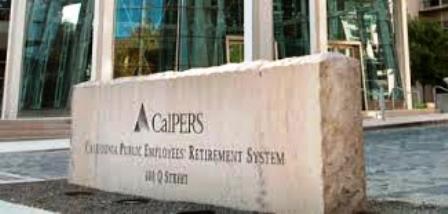
Heads Up!! SB 278: Increased Employer Liability for CalPERS Reporting Errors
- By: Gretchen Dugan
On September 27, 2021, Governor Newsom signed SB 278, which adds Government Code section 20164.5 to the statutes.
SB 278 requires public employers to reimburse CalPERS and pay substantial penalties when CalPERS deems part of a pension benefit to be unlawful after a member has retired, even if CalPERS had previously approved of the benefit during an audit or MOU review.
Basically, all the responsibility for reporting errors or disallowed compensation is shifted to the employer, regardless of the fact that the collaborative process, which includes labor, management and CalPERS, was used to develop pension benefit compensation. The new penalty will be the full cost of any overpayments made to the retiree based on the disallowed compensation AND pay a 20-percent penalty of the amount calculated as a lump sum of the actuarial equivalent of the difference between the retiree’s pension calculated with the disallowed compensation and the pension calculated without the disallowed compensation for the projected duration of the benefit.
Sounds harsh . . . it is. However, the repayment requirement and 20-percent penalty are only implemented when the following conditions are met:
- The compensation was reported to the system and contributions were made on that compensation while the member was actively employed.
- The compensation was agreed to in a memorandum of understanding or collective bargaining agreement between the employer and the recognized employee organization as compensation for pension purposes and the employer and the recognized employee organization did not knowingly agree to compensation that was disallowed.
- The determination by the system that compensation was disallowed was made after the date of retirement.
- The member was not aware that the compensation was disallowed at the time it was reported.
Remember, SB 278 applies to retired annuitants. Current employees are not significantly affected as improper contributions act as credits toward future contributions and disallowed compensation is returned to the employee pre-retirement.
The new statute applies to any prospective determinations and also to determinations made on or after January 1, 2017, if the appeal rights of the retiree have not previously been exhausted.
This new statute will likely need clarification form CalPERS and perhaps litigation to determine the full breadth and scope of its authority. The retroactivity of this law and the statute of limitations are unclear.
SB278 will become effective on January 1, 2022. In preparation for the new year we recommend you review your MOUs and collective bargaining agreements which cover CalPERS’ members to ensure that items are indeed reportable under applicable statutes, regulations and administrative guidance, correct any flawed language and/or reporting practices, notice your Unions regarding effected retired annuitants and employees, and consider negotiating away special compensation in lieu of higher base salary to avoid reporting errors in the future.
This is a significant piece of litigation, one that CSAC opposed and one that could have significant and unfair financial implications on local agencies. As always, reach out to your legal advisors and HR managers for any questions or updated interpretation of law.

